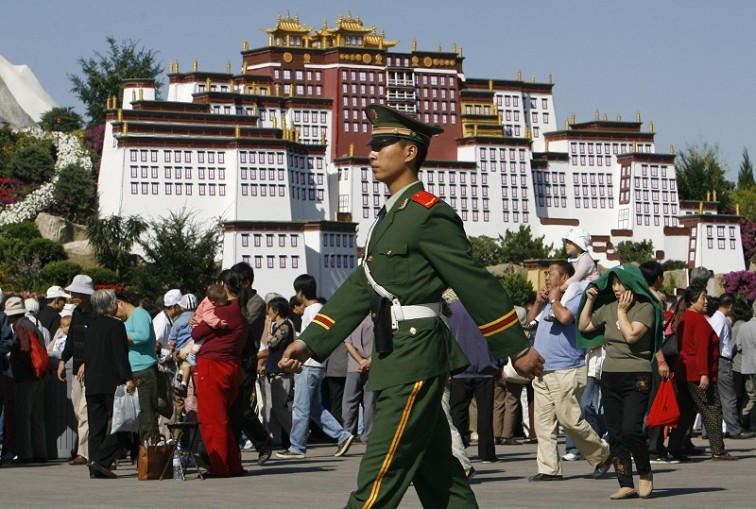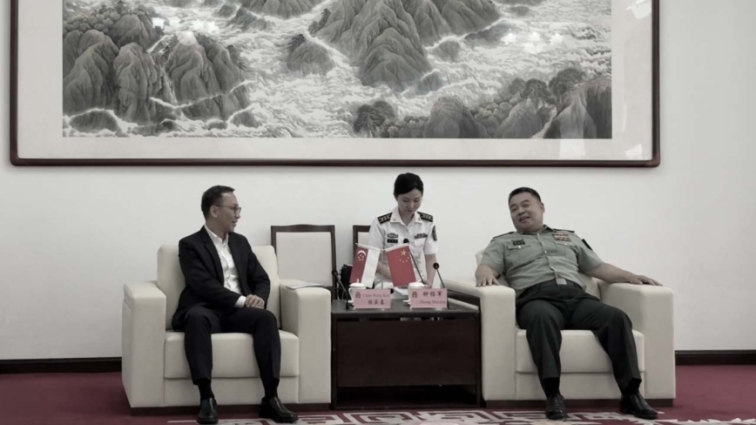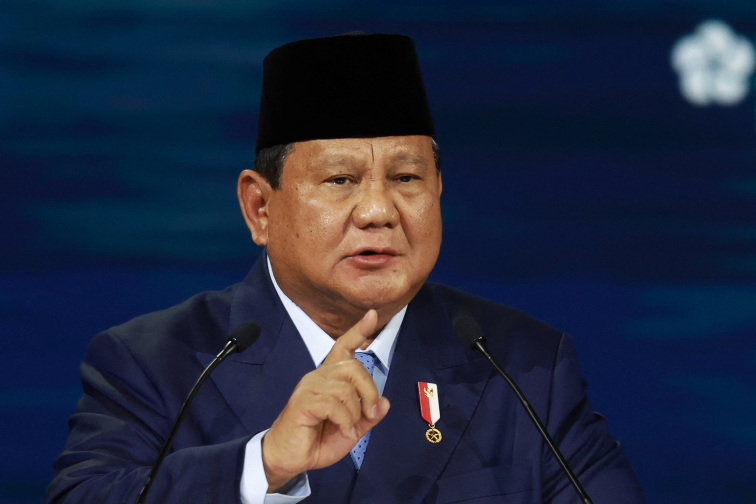On April 21, 2025, He Jingshu, the wife of former Singapore Prime Minister Li Xianlong, shared an article on Facebook that claims Xi Jinping has always behaved like a gang leader during his 12 years in power. (Internet screenshot)
[People News] Jonathan Qin, a former senior analyst at the Central Intelligence Agency (CIA) and director of the China Affairs Office at the National Security Council, along with John Calver, who served as a CIA analyst for 35 years and was the former head of East Asian Affairs at the Office of the Director of National Intelligence (DNI), recently published an article titled "Why Xi Jinping Has Not Been Able to Have His Ideal Army" in the diplomatic journal "Foreign Affairs." These two analysts are recognised as leading experts on China within U.S. intelligence agencies.
The article posits that Chinese President Xi Jinping considers the development of a strong military to be the most critical task of his administration, which is also the primary reason for the ongoing large-scale purges within the military over the past few years.
1. The U.S. Perspective on Xi Jinping's Military Purge
Since the start of Xi Jinping's third term in 2023, at least 21 senior generals in the Chinese Communist Party's military have been purged. Recently, He Weidong, the vice chairman of the Central Military Commission and a close ally of Xi Jinping, along with General Miao Hua (director of the Political Work Department), have also been dismissed, sparking rumours about Xi Jinping's potential ousting. In response, the two analysts remarked, "This shows that Xi Jinping behaves like a Mafia boss; he can discard colleagues once they have served their purpose. His control over the military remains unchanged."
Historically, every top leader of the Chinese Communist Party has contended with powerful factions within the military. For instance, senior generals affiliated with the Jiang faction and the Youth League faction have held significant influence, as previous complex relationships have constrained Xi Jinping's ability to achieve complete consolidation of military power.
American analysts believe that shortly after Xi Jinping assumed power, he introduced the slogan 'able to win battles' to the military. This, in turn, suggests that the military has become so corrupt and incompetent that it is unable to engage in combat.
These analysts assert that Xi has promoted capable young generals to key military positions. Those who were elevated relied on Xi Jinping as their patron and mistakenly viewed their relationship with him as a safeguard against corruption. However, they faced backlash from entrenched factions within the military and ultimately became targets of a widespread purge.
2. Xi Jinping's Purge of the Military Has Generated Resentment
Since taking office as chairman in 2013, Xi Jinping has carried out an intense purge. He enlisted figures like Liu Yuan, part of the 'red second generation', to first dismantle the influence of Xu Caihou, Guo Boxiong, and Gu Junshan, who were aligned with Jiang Zemin in the military. During Xi's rapid military reforms, there was virtually no resistance from within the ranks, which is astonishing to American observers.
According to media analyst 'You Liao', after Liu Yuan completed the military cleanup, he was assassinated by rival factions. Xi Jinping provided Liu with exceptional security but also kept him under surveillance, which may have jeopardised Liu Yuan's political future. Nevertheless, Liu Yuan still owes gratitude to Xi Jinping. You Liao describes this as Xi Jinping's adeptness in managing people.
In 2016, Xi Jinping leveraged military elites like Xu Qiliang to establish a system of five major war zones responsible for all of China, reforming the military structure and integrating the army, navy, and air force across these zones. He significantly reduced the army's troop numbers to diminish its power and created the Rocket Force, tasked with strategic missile operations. Additionally, he introduced a U.S. military-style joint staff system into the Central Military Commission, the highest military authority.
Liu Yuan's departure from the political scene and Xu Qiliang's mysterious death are widely believed to have been orchestrated by Xi Jinping, allowing him to maintain control while also inciting resentment.
Political commentator Chen Pokong highlighted Xi Jinping's primary issue in a media interview: he possesses power but lacks authority. The lingering question is how many people will heed his words when he is absent or unwell.
3. The Confrontation Between Xi Jinping and Zhang Youxia
In contrast to Jiang Zemin and Hu Jintao, Xi Jinping has military experience. After graduating from university in 1979, he joined the General Office of the Central Military Commission as a secretary (at the lieutenant level), serving under Geng Biao for three years. He also received substantial support from Zhang Youxia, the current Vice Chairman of the Central Military Commission, who shares a princeling background.
Recent rumours regarding Xi Jinping's potential resignation have sparked speculation that Zhang Youxia might rebel against him. Two American analysts suggest that Zhang Youxia, who previously held the position of Minister of Equipment Development—a known hub for military corruption—has evaded recent corruption investigations due to Xi Jinping's protection.
However, judging by Xi Jinping's tactics against Liu Yuan and Xu Qiliang, it seems likely that he may resort to similar strategies, using corruption evidence to pressure Zhang Youxia into compliance. The recent appearance of Yang Lanlan from Australia has revealed that Xi Jinping is the most corrupt figure within the CCP, raising questions about whether the corruption card can still effectively control Zhang Youxia and other military leaders.
4. Xi Jinping's Illusion of Re-election, but Reality Hits Back
According to two American analysts, Xi Jinping is expected to embark on his fourth term, leveraging the achievements of military modernisation.
However, according to intelligence gathered by Professor Yuan Hongbing regarding the Chinese Communist Party and his personal insights as a drinking companion of Xi Jinping, it is believed that Xi's power is facing significant challenges. For example, in the Ministry of Foreign Affairs, the two foreign ministers he intended to appoint, Qin Gang and Liu Jianchao, have both fallen from favour. In the military, commanders from his loyal 31st Army have also gone missing one after another, indicating a lack of recognition of his authority within the party.
Chen Pokong argues that while Xi still appears to hold significant power over the party, government, and military, he is confronted with a core paradox. He has centralised power to an unprecedented level, yet has failed to establish an authority that commands respect. Particularly in terms of economic policy and foreign strategy, he has been forced to retreat, making it difficult to win public support.
It is rumoured that Xi Jinping once told local officials in Guizhou, 'If I step down due to health reasons, I will ensure a smooth transition for the central government.' This statement may serve as his 'escape route,' providing reassurance to Zhang Youxia and the political elders, while also acting as a form of self-protection against the power core in Beijing. The fractures in military authority, economic challenges, international isolation, along with health concerns are causing his 'power pyramid' to gradually lose its foundation. As a result, Xi Jinping's re-election seems highly unlikely.
(People News first published) △











News magazine bootstrap themes!
I like this themes, fast loading and look profesional
Thank you Carlos!
You're welcome!
Please support me with give positive rating!
Yes Sure!